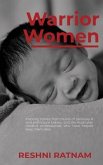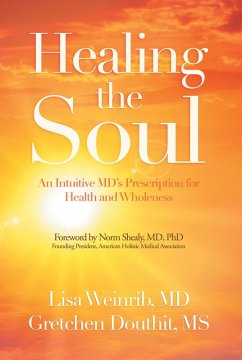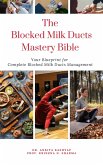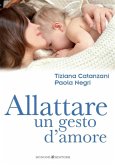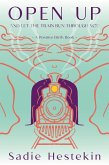From bioethicist September Williams, MD, the author of 'Chasing Mercury,' with Mothers' Milk Bank, San Jose, comes The Elephant in the Room: Bioethical Concerns in Human Milk Banking. Seriously humorous, informative and timely, The Elephant… makes bioethics look sexy. The year 2018 will be remembered as pivotal in modern history. This year, the first mother-model (in more ways than one ) helped empower all families by breastfeeding her baby at work-on a runway during Fashion Week. How did we come to this point where breastfeeding is sensational?
In Dr. Williams hands, bioethics, some heady science, and public health are broken into bite-sized bits ingestible by 'everybody and their mothers'. She looks at worries about access to breastfeeding and breast milk equity. We are forced to consider why every infant can't receive breast milk when we are in the land of plenty in the USA and-science tells us that children and their mothers' health can be improved by breastfeeding.
"Should we let babies starve?" The Elephant asks. It is a not so 'tongue in cheek' example of a simplified moral question. The book wades through the pain of disproportionate infant mortality by race, maternal morbidity. The evidence is given for why parents and mothers plagued by high infant mortality might benefit from mind-body skill development. The ethical traps inherent in dependence on biotechnology and neonatal intensive care units reacting to prematurity, without an equal focus on diminishing root causes in communities of most need-are underlined.
The daily restocking of breast milk bank freezers, emptied by night to feed frail babies in need, is a miracle that is facilitated by donations from women's' bodies and hearts. The Elephant in the Room: Bioethical Concerns in Human Milk Banking trumpets a song that can be easily heard by a wide range of people-women and men, health care professionals, owners of restaurants, bookstores, movie theaters, and the average person on the street. The clarion call? "More breast milk, please."
Not for profit Mothers' Milk Bank, San Jose provides over 1/2 million ounces of milk to babies in need annually. The easily needs twice as many donations annually to meet projected expanded needs- for those babies whose mothers who are unable, in the short run, to provide milk for them. This book reflects the MMB-SJ "call to arms," directed at those who hold babies and life dear. The proceeds of the Elephant in the Room: Bioethical Concerns in Human Milk Banking are being donated to Mothers' Milk Bank San Jose.
In Dr. Williams hands, bioethics, some heady science, and public health are broken into bite-sized bits ingestible by 'everybody and their mothers'. She looks at worries about access to breastfeeding and breast milk equity. We are forced to consider why every infant can't receive breast milk when we are in the land of plenty in the USA and-science tells us that children and their mothers' health can be improved by breastfeeding.
"Should we let babies starve?" The Elephant asks. It is a not so 'tongue in cheek' example of a simplified moral question. The book wades through the pain of disproportionate infant mortality by race, maternal morbidity. The evidence is given for why parents and mothers plagued by high infant mortality might benefit from mind-body skill development. The ethical traps inherent in dependence on biotechnology and neonatal intensive care units reacting to prematurity, without an equal focus on diminishing root causes in communities of most need-are underlined.
The daily restocking of breast milk bank freezers, emptied by night to feed frail babies in need, is a miracle that is facilitated by donations from women's' bodies and hearts. The Elephant in the Room: Bioethical Concerns in Human Milk Banking trumpets a song that can be easily heard by a wide range of people-women and men, health care professionals, owners of restaurants, bookstores, movie theaters, and the average person on the street. The clarion call? "More breast milk, please."
Not for profit Mothers' Milk Bank, San Jose provides over 1/2 million ounces of milk to babies in need annually. The easily needs twice as many donations annually to meet projected expanded needs- for those babies whose mothers who are unable, in the short run, to provide milk for them. This book reflects the MMB-SJ "call to arms," directed at those who hold babies and life dear. The proceeds of the Elephant in the Room: Bioethical Concerns in Human Milk Banking are being donated to Mothers' Milk Bank San Jose.
Dieser Download kann aus rechtlichen Gründen nur mit Rechnungsadresse in A, D ausgeliefert werden.



